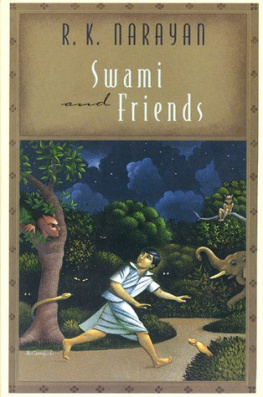Bimal Prasad - The Dream of a Revolution: A Biography of Jayaprakash Narayan
Here you can read online Bimal Prasad - The Dream of a Revolution: A Biography of Jayaprakash Narayan full text of the book (entire story) in english for free. Download pdf and epub, get meaning, cover and reviews about this ebook. year: 2021, publisher: Penguin Random House India Private Limited, genre: Non-fiction. Description of the work, (preface) as well as reviews are available. Best literature library LitArk.com created for fans of good reading and offers a wide selection of genres:
Romance novel
Science fiction
Adventure
Detective
Science
History
Home and family
Prose
Art
Politics
Computer
Non-fiction
Religion
Business
Children
Humor
Choose a favorite category and find really read worthwhile books. Enjoy immersion in the world of imagination, feel the emotions of the characters or learn something new for yourself, make an fascinating discovery.
- Book:The Dream of a Revolution: A Biography of Jayaprakash Narayan
- Author:
- Publisher:Penguin Random House India Private Limited
- Genre:
- Year:2021
- Rating:4 / 5
- Favourites:Add to favourites
- Your mark:
- 80
- 1
- 2
- 3
- 4
- 5
The Dream of a Revolution: A Biography of Jayaprakash Narayan: summary, description and annotation
We offer to read an annotation, description, summary or preface (depends on what the author of the book "The Dream of a Revolution: A Biography of Jayaprakash Narayan" wrote himself). If you haven't found the necessary information about the book — write in the comments, we will try to find it.
Bimal Prasad: author's other books
Who wrote The Dream of a Revolution: A Biography of Jayaprakash Narayan? Find out the surname, the name of the author of the book and a list of all author's works by series.
The Dream of a Revolution: A Biography of Jayaprakash Narayan — read online for free the complete book (whole text) full work
Below is the text of the book, divided by pages. System saving the place of the last page read, allows you to conveniently read the book "The Dream of a Revolution: A Biography of Jayaprakash Narayan" online for free, without having to search again every time where you left off. Put a bookmark, and you can go to the page where you finished reading at any time.
Font size:
Interval:
Bookmark:



SUJATA PRASAD

PENGUIN BOOKS

PENGUIN BOOKS
A riveting account of the life of the greatest keeper, after Gandhi, of Indias political conscience, who died, like his guide, in the loneliness of shattered dreams, betrayed ideals, forsaken covenants. JPs incredible life needs to be studied, restudied, told, retold. And who better than Bimal Prasads daughter Gopalkrishna Gandhi
If an institution, as Ralph Waldo Emerson wrote, is the lengthened shadow of one man, Jayaprakash Narayans touched an entire arc of history. From his battle of ideas in the Congress, shaped by Bihar as much as Berkeley, to his rallying cry of Total Revolution against the Emergency, JP was, and remains to this day, the talismanic face for the opposition in a deeply divided democracy. His journey lies at the heart of Sujata Prasad and Bimal Prasads remarkable biography The Dream of Revolution. The book is a labour of love, a deeply felt and yet dispassionate analysis, invaluable for scholars and students. Blending personal and political, public and private, the authors explain how JP galvanized an entire generation of midnights children, helping them find, in democratic politics, a cause larger than themselves. There couldnt be a more relevant political life story than thisRaj Kamal Jha
Sujata Prasads biography of Jayaprakash Narayan sketches a vivid picture of his life and times in the nationalist movement and in independent India. Its elegant prose brings to life his revolutionary ideas and socialist beliefs, juxtaposed with political realities that tormented him with unanswered questions. Even so, his dissenting voice and moral stature provided critical checks and balances for our political democracy, which are sorely missed in these difficult times. The Dream of Revolution is an engaging must-read for anyone interested in the history and politics of democracy in IndiaDeepak Nayyar
Freedom is always, and exclusively, freedom for the onewho thinks differentlyRosa Luxemburg
We need a protest against forgettingEric Hobsbawm
Jayaprakash Narayan needs to be rescued from the condescension of posterity and a curious historical amnesia. He was a political force for nearly half a century. Self-effacing, yet so visible that he was known by his initials, JP. He was the face of the student revolution in 1974. It was high-energy politics, personal and political, very of the moment, mobilizing and energizing large groups of people and shaping the political discourse with its own nuances. Several student leaders cut their teeth in the tumult of the movement and became characters in a drama they never seriously auditioned for. It brought the romance of barricades back to our lives, and imbued our lived experience with something akin to what Raymond Williams has described as a new structure of feeling.
Jayaprakashs dream of revolution collapsed under the weight of its own contradictions, but like many of my generation, I was caught in a swirl of admiration. I saw in him an embodiment of intellectual elegance at a time when politics was raw, angry and out of control. His vision of a society untethered from capitalism seemed to open up new possibilities. His ideas continue to echo in the waves of protests and civil unrest that sweep across the world, as they have during the 2010 anti-government protests that rocked countries in North Africa and the Middle East, in the Indignados protests in Spain, in the Occupy Wall Street and its sister movements for economic justice that spread to 951 cities in eighty-two countries and in the fires of social revolt in Latin America in 2019.
Jayaprakashs pursuit of freedom and an equitable and just order was the quintessential revolutionarys quest (the title of one of my father, Bimal Prasads books on his selected writings). His ideas were in a state of perpetual unrest, and the quest led him from Gandhi to Marx and then back again to Gandhi, never completely forsaking one for the other. In an entry in his 1975 book Prison Diary, Jayaprakash confessed that he was bitten by the bug of revolution when he was in high school. He studied the inner life of revolutions and revolutionary movements while reading for his masters at the University of Wisconsin. He devoured Marxs masterpiece on political economy, Das Kapital, that laid bare the exploitation at the heart of the capitalist mode of production. He also read The Communist Manifesto (more Engels than Marx), the Grundrisse and an enormous body of theoretical work by Marxists like Rosa Luxemburg, Karl Liebknecht and Karl Kautsky, and soon became a prominent Marxist voice on the campus.
Socialism gained legitimacy, both as an idea and as political ambition, when Jayaprakash returned to India and threw in his lot with the Congress. No one could question his radical politics and his high-wire acts of dissent. His contagious confidence about the future of Marxian socialism led to the formation of the Congress Socialist Party (CSP) in 1934. Seeing the CSP as the vanguard of the nationalist left, he struggled to build socialism as a powerful countervailing political force within the Congress. He remained an anathema, a quintessential rebel frequently at odds with the very side he was supposed to represent. During this phase, he saw very little potential in Gandhism as a tool of political praxis. He considered it a dangerous doctrine that hushed up real issues, deceived the masses and facilitated continued domination by the upper classes. But he was also not particularly enamoured by the Bolshevik-style state socialism. He felt it was imperative to build a socialist movement within the framework of Marxist thought, of world history since Marxs death and Indias own political history, aware that there were multiple constructions of Marxism that needed contextualization.
Jayaprakash pioneered the idea of an independent left, unbeholden to the Comintern that was dominated by the Communist Party of the Soviet Union. He took up the challenge of forging left unity, but the quibbles were far too many, and the odds were against him. Marxs aphorism about history repeating itself, first as tragedy, then as farce, stood on its head during Jayaprakashs engagement with the Communist Party of India (CPI), patterning itself as farce first, and then, tragedy. The farcical side emerged when the CPI started a venal campaign against the CSP, characterizing the latter as the left manoeuvre of the bourgeoisie and projecting itself as the only genuine Marxist party in India. If Jayaprakash felt let down by the CPIs intellectual turpitude, the horrors of Stalins debased version of Marxism compounded the sense of tragedy. Nothing, he felt, could historically justify what was happening in Russia.
Radicalized by his long spells in prison, Jayaprakashs political thinking took a dramatic turn in 1942 when he turned to a spikier version of MarxismLeninism and built an underground network of armed revolutionaries. The unpredictability and arbitrariness of his combative call to arms, that many in the Congress considered a misstep, was explained in a letter addressed to students with detailed blueprints on guerrilla strategy and tacticssomewhat like Che Guevaras
Font size:
Interval:
Bookmark:
Similar books «The Dream of a Revolution: A Biography of Jayaprakash Narayan»
Look at similar books to The Dream of a Revolution: A Biography of Jayaprakash Narayan. We have selected literature similar in name and meaning in the hope of providing readers with more options to find new, interesting, not yet read works.
Discussion, reviews of the book The Dream of a Revolution: A Biography of Jayaprakash Narayan and just readers' own opinions. Leave your comments, write what you think about the work, its meaning or the main characters. Specify what exactly you liked and what you didn't like, and why you think so.

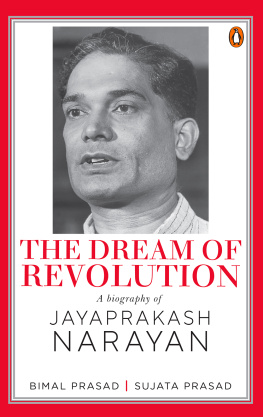
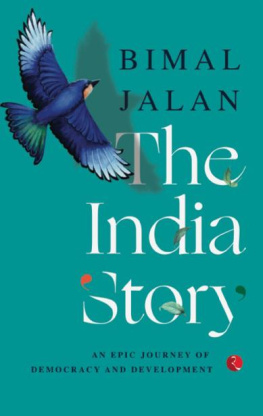
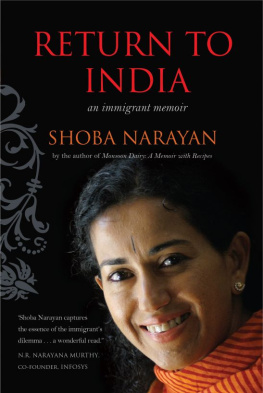

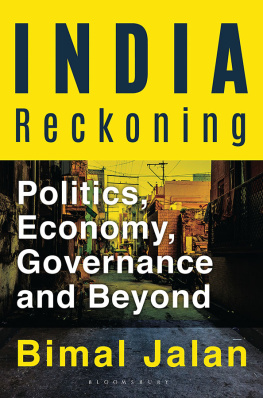
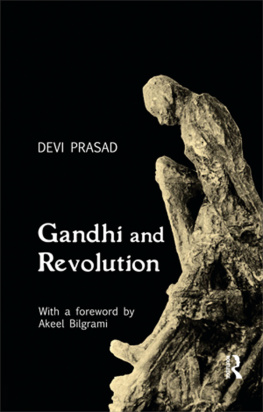
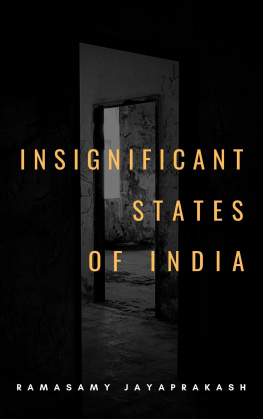
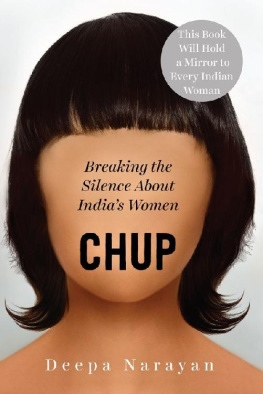
![Bimal Kanti Paul - Natural Hazards and Disasters: From Avalanches and Climate Change to Water Spouts and Wildfires Vol 1 [2 Volumes]](/uploads/posts/book/258477/thumbs/bimal-kanti-paul-natural-hazards-and-disasters.jpg)


